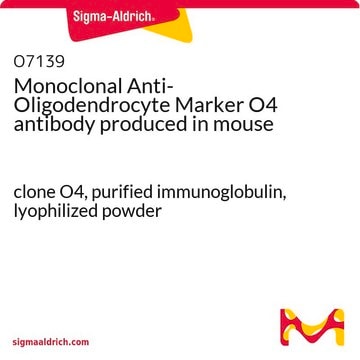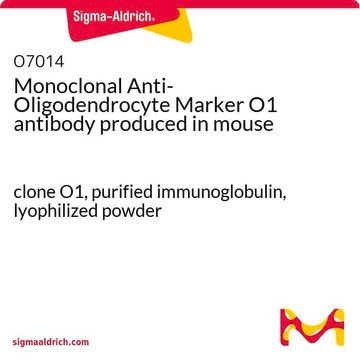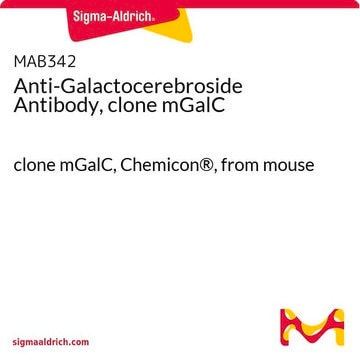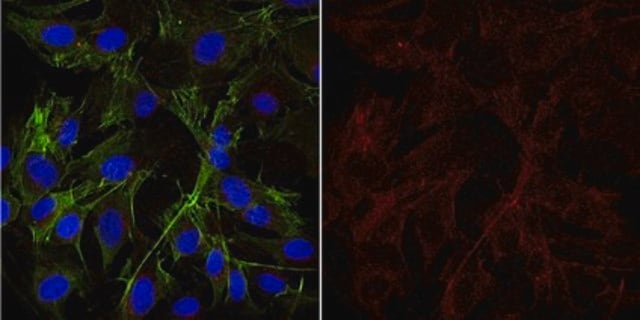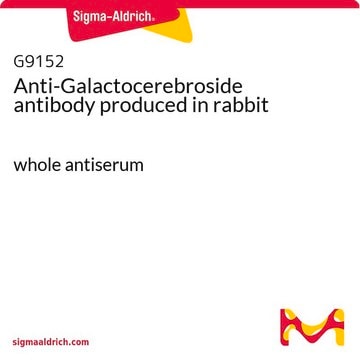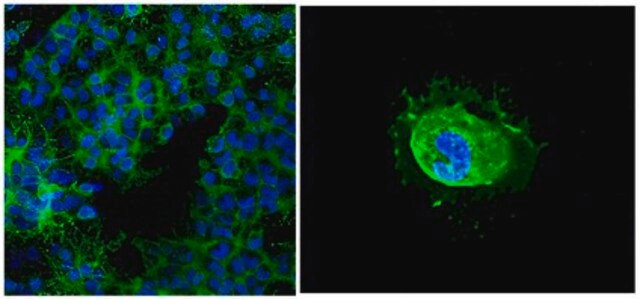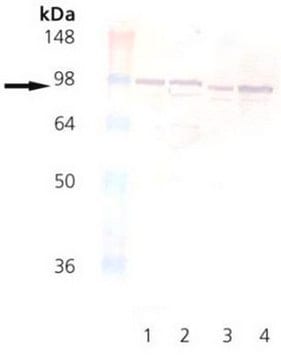MAB345A4
Anti-O4 Antibody, clone 81, Alexa Fluor™488 Conjugate
clone 81 (mAB 04), from mouse, ALEXA FLUOR™ 488
About This Item
Productos recomendados
biological source
mouse
Quality Level
conjugate
ALEXA FLUOR™ 488
antibody form
purified immunoglobulin
antibody product type
primary antibodies
clone
81 (mAB 04), monoclonal
species reactivity
rat
species reactivity (predicted by homology)
human (based on 100% sequence homology), bovine (based on 100% sequence homology), chicken (based on 100% sequence homology), mouse (based on 100% sequence homology)
technique(s)
immunocytochemistry: suitable
isotype
IgM
shipped in
wet ice
target post-translational modification
unmodified
General description
Specificity
Immunogen
Application
Neuroscience
Neurodegenerative Diseases
Quality
Immunocytochemistry Analysis: A 1:100 dilution of this antibody detected O4 in undifferentiated rat oligodendrocyte precursor cells.
Physical form
Storage and Stability
Analysis Note
Undifferentiated rat oligodendrocyte precursor cells
Legal Information
Disclaimer
¿No encuentra el producto adecuado?
Pruebe nuestro Herramienta de selección de productos.
Storage Class
12 - Non Combustible Liquids
wgk_germany
WGK 2
flash_point_f
Not applicable
flash_point_c
Not applicable
Certificados de análisis (COA)
Busque Certificados de análisis (COA) introduciendo el número de lote del producto. Los números de lote se encuentran en la etiqueta del producto después de las palabras «Lot» o «Batch»
¿Ya tiene este producto?
Encuentre la documentación para los productos que ha comprado recientemente en la Biblioteca de documentos.
Artículos
Derivation and characterization of functional human neural stem cell derived oligodendrocyte progenitor cells (OPCs) that efficiently myelinate primary neurons in culture.
Nuestro equipo de científicos tiene experiencia en todas las áreas de investigación: Ciencias de la vida, Ciencia de los materiales, Síntesis química, Cromatografía, Analítica y muchas otras.
Póngase en contacto con el Servicio técnico
